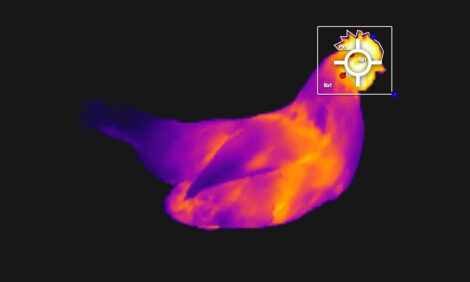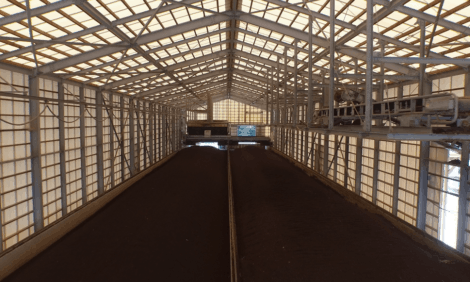



Litter Moisture: Key to Food Pad Dermatitis in Turkeys
Litter moisture should be kept below 30 per cent to minimise the prevalence and severity of food pad dermatitis in turkeys, according to new research from Hanover, Germany.Since turkeys are in continuous contact with the litter, the potential effects of bedding materials and their quality are of major concern in the aetiology of Foot Pad Dermatitis (FPD), according to I.M.I. Youssef and co-authors at University of Veterinary Medicine, Hanover, Foundation, in a paper in International Journal of Poultry Science.
Two week-old female turkeys were allotted to four groups, with 29 in each and housed either on wood shavings, lignocellulose, chopped straw or dried maize silage over a period of four weeks without artificial acclimatisation. The birds in all groups were fed identical commercial diets.
Half of the turkeys in each group were additionally exposed for eight hours per day to corresponding wet (27 per cent dry matter; by adding water) litter in adjacent separate boxes.
Foot pads of the birds were examined macroscopically and histologically at the start and end of the experiment as well as at weekly intervals.
Lignocellulose showed the lowest severity of FPD on dry and wet litter treatments, whereas chopped straw was associated with high FPD scores on dry treatment. Foot pad scores were similar on wood shavings and dried maize silage whether dry or wet.
The DM content of litter materials was determined and the highest moisture content among dry treatments was observed in straw (about 31 per cent) which was paralleled with FPD severity. The severity of FPD was overall much higher (more than tow-fold) on wet than on dry litter.
Exposure of the birds to wet litter for eight hours per day was sufficient to develop FPD. Lignocellulose could reduce the FPD severity, probably due to higher water-binding capacity and faster release of water, while straw may increase it due to lower water evaporation. The physical form of litter either soft (lignocellulose) or with sharp edges (chopped straw) may also affect the onset of FPD.
The litter moisture appears to be the dominant factor resulting in the development of FPD and should be kept lower than about 30 per cent to minimise the prevalence and severity of FPD in turkeys, concluded Youssef and co-authors.
Reference
Youssef I.M.I., A. Beineke, K. Rohn and J. Kamphues. 2010. Experimental study on effects of litter material and its quality on foot pad dermatitis in growing turkeys. International Journal of Poultry Science, 9 (12):1125-1135.
Further Reading
| - | You can view the full report by clicking here. |
December 2010








